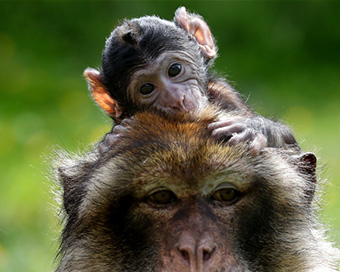Gallery
 PM Modi visit USA
PM Modi visit USA Only the mirror in my washroom and phone gallery see the crazy me : Sara Khan
Only the mirror in my washroom and phone gallery see the crazy me : Sara Khan Karnataka rain fury: Photos of flooded streets, uprooted trees
Karnataka rain fury: Photos of flooded streets, uprooted trees Cannes 2022: Deepika Padukone stuns at the French Riviera in Sabyasachi outfit
Cannes 2022: Deepika Padukone stuns at the French Riviera in Sabyasachi outfit Ranbir Kapoor And Alia Bhatt's Wedding Pics - Sealed With A Kiss
Ranbir Kapoor And Alia Bhatt's Wedding Pics - Sealed With A Kiss Oscars 2022: Every Academy Award Winner
Oscars 2022: Every Academy Award Winner Shane Warne (1969-2022): Australian cricket legend's life in pictures
Shane Warne (1969-2022): Australian cricket legend's life in pictures Photos: What Russia's invasion of Ukraine looks like on the ground
Photos: What Russia's invasion of Ukraine looks like on the ground Lata Mangeshkar (1929-2022): A pictorial tribute to the 'Nightingale of India'
Lata Mangeshkar (1929-2022): A pictorial tribute to the 'Nightingale of India' PM Modi unveils 216-feet tall Statue of Equality in Hyderabad (PHOTOS)
PM Modi unveils 216-feet tall Statue of Equality in Hyderabad (PHOTOS)The Badminton Association of India (BAI) has announced a 14-member-strong India squad for
- Men’s Sr Hockey Nationals to be played in division-based format from April 4
- Mensik denies Djokovic 100th title in Miami final
- KIPG: Son of a vegetable vendor, Bihar’s Jhandu Kumar eyes Worlds, 2028 Paralympics
- Hardik Singh credits hard work and team unity for receiving HI Midfielder of the Year award
- Djokovic, Alcaraz land in same half of Miami draw
Dozens of mammals could be susceptible to SARS-CoV-2 Last Updated : 05 Oct 2020 08:01:32 PM IST 
Monkeys (file photo) About 26 animals that come in regular contact with people may be vulnerable to SARS-CoV-2, the virus that causes Covid-19, says a study.
The researchers found that most birds, fish, and reptiles do not appear to be at risk of infection, but the majority of the mammals they reviewed could potentially be infected.They predict possible infection in domestic cats, dogs, mink, lions, and tigers, all of which have had reported cases, as well as ferrets and macaques, which have been infected in laboratory studies, according to the study published in the journal Scientific Reports."We wanted to look beyond just the animals that had been studied experimentally, to see which animals might be at risk of infection, and would warrant further investigation and possible monitoring," said lead author Christine Orengo, Professor at University College London."The animals we identified may be at risk of outbreaks that could threaten endangered species or harm the livelihoods of farmers. The animals might also act as reservoirs of the virus, with the potential to re-infect humans later on, as has been documented on mink farms."For the study, the researchers investigated how the spike protein from SARS-CoV-2 could interact with the main cellular receptor for the virus in humans called angiotensin converting enzyme-2 (ACE2).The focus of the investigation was whether mutations in the ACE2 protein in 215 different animals, that make it different from the human version, would reduce the stability of the binding complex between the virus protein and host protein.Binding to the protein enables the virus to gain entry into host cells. While it is possible the virus might be able to infect animals via another pathway, it is unlikely based on current evidence that the virus could infect an animal if it cannot form a stable binding complex with ACE2.The researchers found that for some animals, such as sheep and great apes (chimpanzee, gorilla, orangutan, and bonobo, many of which are endangered in the wild), the proteins would be able to bind together just as strongly as they do when the virus infects people.Some of the animals, such as sheep, have not yet been studied with infection tests, so this does not confirm that the animal can indeed be infected.The research team also performed more detailed structural analyses for certain animals, to gain a better understanding of how infection risks may differ across animal species.By comparing their findings to other experimental data, they set thresholds to predict which animals are at risk of infection, and which ones most likely cannot be infected.IANS London For Latest Updates Please-
Join us on
Follow us on








172.31.16.186







